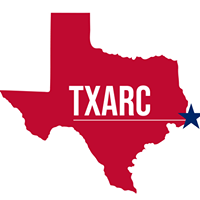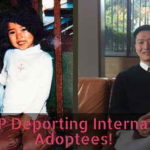Published on April 25, 1999
Debate on birth records goes to court
- Adoption activists say it’s their constitutional right to find out where they’re from
By Gayle Vassar Melvin
TIMES STAFF WRITER
Adoption activists say their fight to open birth records is nothing short of a civil rights movement.
“We are not trying to garner special treatment, just to have what everyone else has,” says Ron Morgan of San Francisco, a leader in the reform group Bastard Nation. “We are very noncompromising on our stance, that there is a firm constitutional basis to see our birth certificates. It is a matter of equal treatment under the law.”
It’s an argument that found favor in Oregon, where 57 percent of the voters in November 1998 approved Measure 58, giving adult adoptees the right to their original birth certificates upon request. Implementation of the measure is on hold pending resolution of a lawsuit filed by seven birth mothers.
States started sealing birth records at the turn of the century to protect children from the stigma of illegitimacy. Most states, including California, seal original birth certificates when a child is adopted, issuing a new certificate bearing the adoptive parents’ names. Even if all members of the triad — the adoptee, birth parents and adoptive parents — agree to unseal the original birth certificate, it cannot be done.
Some states stopped sealing birth records for current and future adoptions, but have kept records from prior years sealed.
‘Breaking a promise’
It is the retroactive quality of Measure 58 that is unfair because it breaks the promise of confidentiality given to birth mothers of the past, says Franklin Hunsaker, the Oregon attorney representing the birth mothers who sued to block the measure.
“That is the true evil of Measure 58. These birth mothers don’t want to be found. Some of them were raped, some had a moment of indiscretion. They made a very difficult decision, based on promises of confidentiality and assurances that they would be able to move on with their lives. Now they dread that knock on the door.”
Hogwash, says adoptee Florence Fisher, who founded ALMA, probably the first adoption rights group in the United States, in 1971. “No parent has a right to privacy from his or her own child,” she says. “If (my biological mother) doesn’t want a relationship, let her tell that to me.”
Fisher may well have been the first adoptee to demand access to her records back in the 1950s. Furious over the roadblocks thrown her way, she took out an ad in the New York Times in 1970 asking other adoptees to contact her.
“It was a landslide,” she says of the response.
Soul searching
She founded ALMA, Spanish for “soul,” the next year, and was reunited with her birth parents around the same time. Other adoption reform groups followed, including the American Adoption Congress, and, in recent years, Bastard Nation.
Bastard Nation, whose members cheerfully acknowledge the in-your-face quality of their organization’s name, inspired Oregon’s Measure 58 with a speech at a yearly conference. Among those campaigning for Measure 58 were birth mothers of the Oregon Adoptive Rights Association.
Association president Dolores Teller disputes claims that birth mothers were promised confidentiality. None of the girls were made such promises at the maternity home where she gave birth in 1968, says Teller. “Nor did they want their children to be taken from them. But we had no choice,” she says.
Teller believes the fight to keep records closed is fear-based. “It’s all about controlling women. We were hidden away when we were pregnant, tied up in leather restraints for labor, and not allowed to see our children. Now all of a sudden, they care about us. They are hiding behind us because they just don’t want what happened in the past to become public.”
An easy find
Hunsaker disagrees. Adoptees can find their birth parents without open birth records. He should know, he says. As an adoptive father of five, he’s helped his adult children find their birth parents using the methods already in place, such as intermediaries who contacted the birth mothers and asked if they wanted to meet their children.
“The vice of Measure 58 is that it is not based on mutual consent,” says Hunsaker. “It is saying ‘My rights trump whatever rights the birth parents have.’ The pro-58 people say they have a right to see their original birth certificate no matter what, and I think that’s wrong.”
What is wrong, say adoptees, is that they are the only adults whose parents continue to have power over their birth certificates.
“Babies don’t ask to be adopted,” says Sarah Alexander of El Cerrito, who found her birth parents when she was in her late 20s. “It is a decision birth parents made without the child having any say in it. As an adult, they have the right to face the adult who relinquished them and hear why they were relinquished.”
Opening birth records does more than pave the way for a reunion between parent and child, says Damsel Plum of Bastard Nation. It eases the stigma many adoptees believe is in inherent in being adopted.
“We just want equal access under the law to our birth records, and dignity in fighting the stereotypes surrounding adoption,” she says.


 New York Adoptee Rights Coalition
New York Adoptee Rights Coalition











